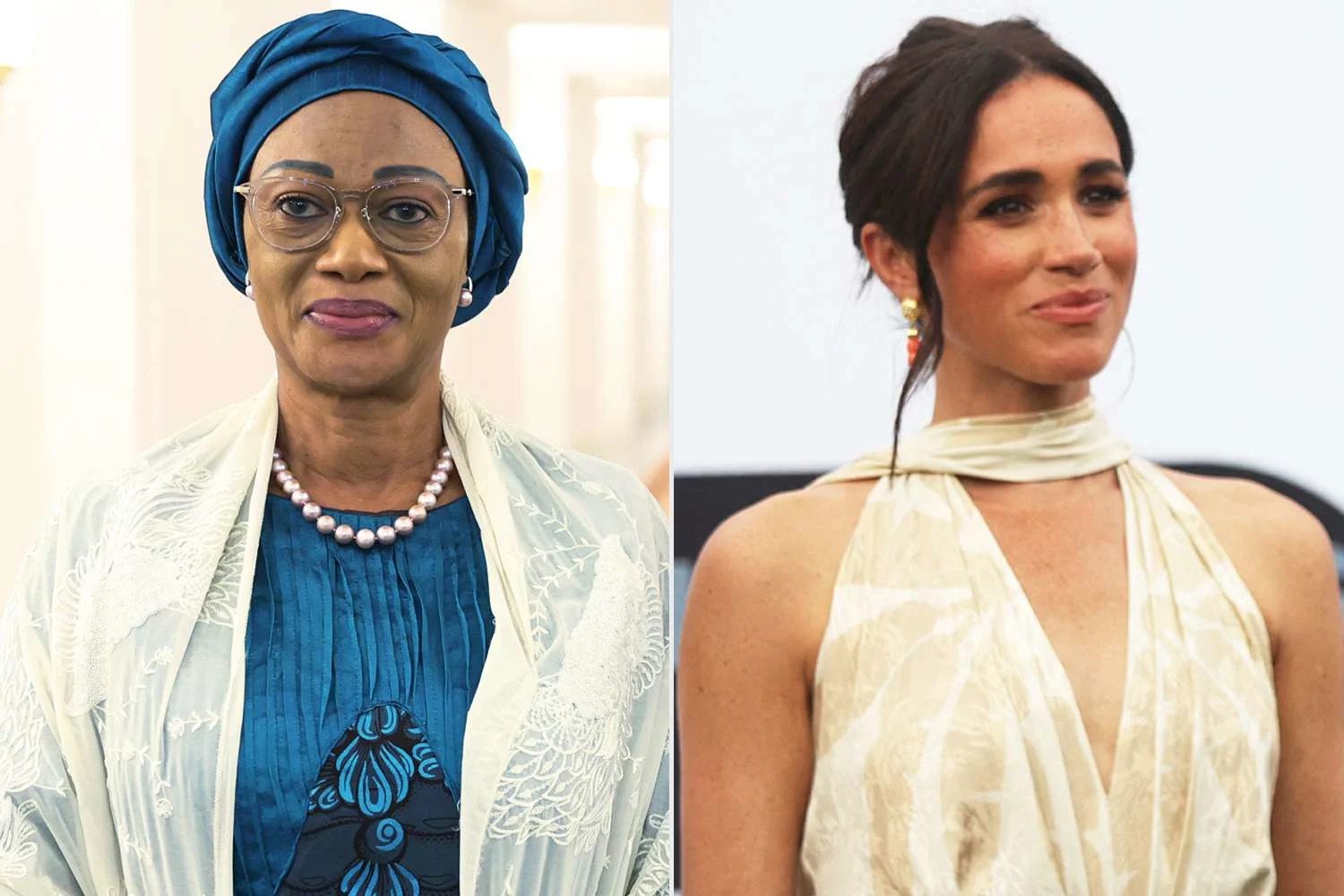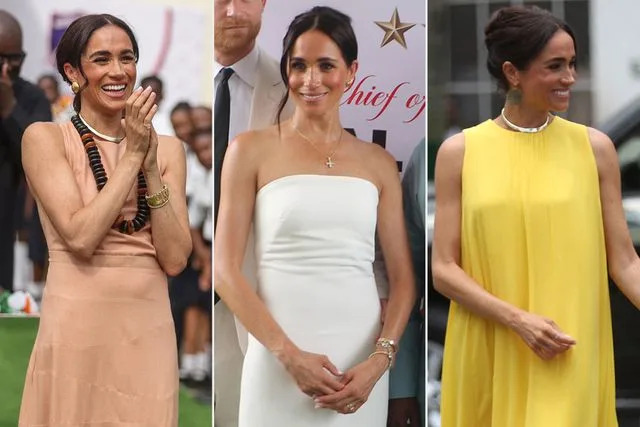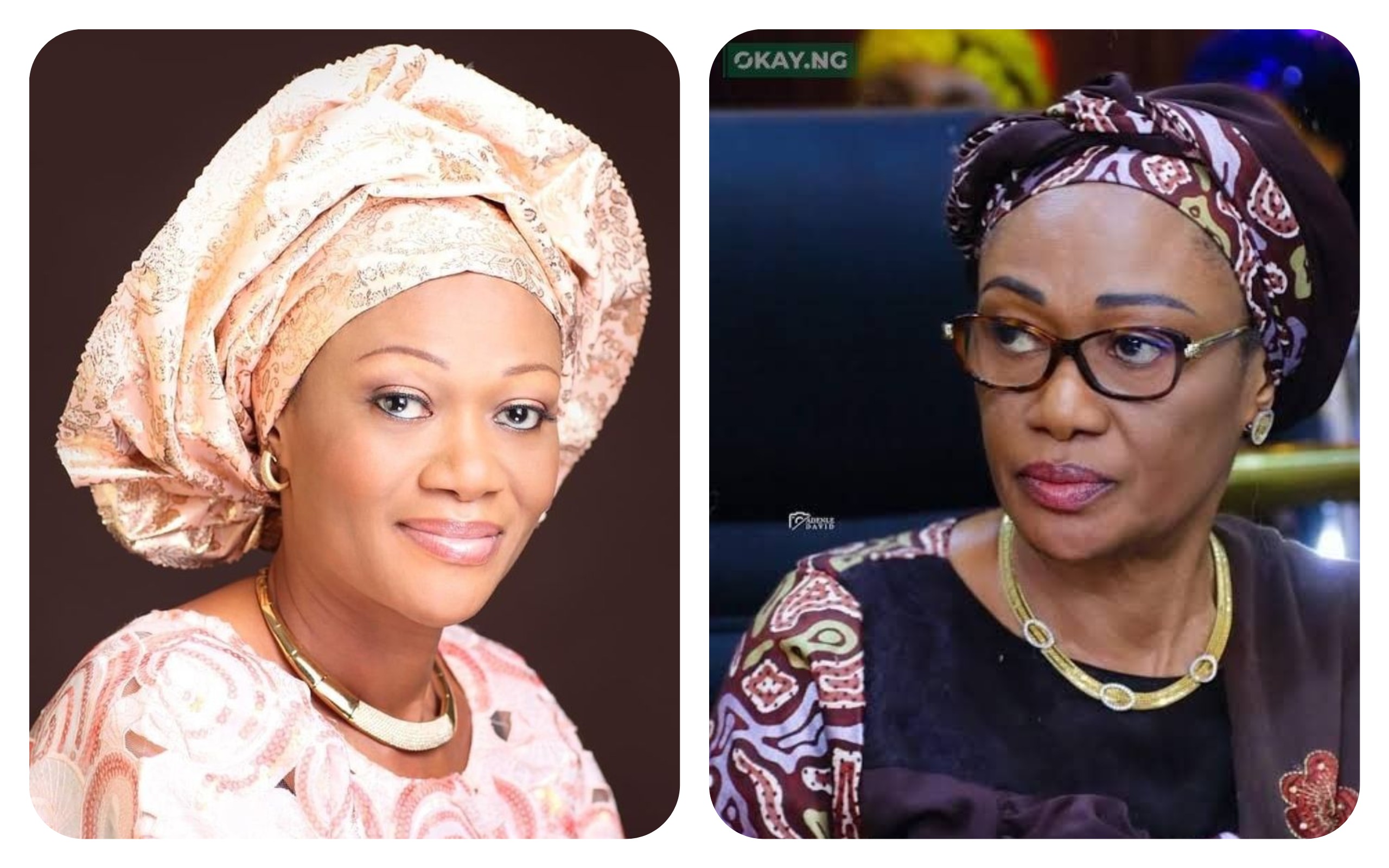First Lady of Nigeria, Sen. Oluremi Tinubu, recently found herself at the center of a media frenzy after remarks she made were misinterpreted as criticism of Meghan Markle’s attire during her visit to Nigeria. The First Lady’s office has now stepped in to clarify her statements, ensuring the world understands her true intentions.

The Speech That Sparked Controversy
During a speech at an event celebrating the first year of her husband, Bola Ahmed Tinubu’s presidency, a video surfaced showing First Lady Tinubu discussing cultural values and the challenges faced by Nigerian youth. Her remarks included:
We are not having the Met Gala… We don’t accept nakedness in our culture,” she said. “It is not beautiful at all… They are mimicking and trying to emulate film stars from America. They don’t know where they come from. Why did Meghan come here, looking for Africa? That is something we have to take home with. We know who we are, and don’t lose who you are.”
This led to widespread speculation that the First Lady was directly criticizing Meghan Markle’s fashion choices during her recent visit to Nigeria.

The Clarification
In response to the uproar, the First Lady’s office released a statement to AFP Fact Check, clarifying that Tinubu’s remarks were not aimed at Meghan Markle’s wardrobe. Instead, they were about the Duchess of Sussex’s journey to understand her identity and reconnect with her Nigerian heritage.
“At no point did she say anything about Meghan’s dressing,” the statement read. “She meant Meghan appreciates the people we are and hence her coming here.”

Meghan and Harry’s Visit to Nigeria
Meghan Markle and Prince Harry visited Nigeria from May 10 to May 12, following an invitation from the country’s Chief of Defense Staff. Their trip aimed to support the Archewell Foundation’s mental health initiatives for young people and to promote the Invictus Games, which Nigeria joined for the first time in 2023.
During their visit, Meghan, who discovered she is 43% Nigerian through a genealogy test, expressed a deep connection to the country. These trips are about us being able to go out and go and focus on the things that mean so much to us,” Prince Harry said. “And being able to be on the ground, to us, is what it’s all about.”
“It’s really meaningful. Just being able to connect to people… that’s what makes it special,” added Meghan.
Setting the Record Straight
First Lady Tinubu’s speech, delivered at an event titled “Celebrating the Woman” in Abuja, was intended to emphasize the importance of cultural pride and positive role models for the younger generation. She highlighted the need to salvage and celebrate Nigerian beauty and fashion without imitating foreign celebrities.
“The message here is, we have to salvage our children,” she said. “You know we see the way they dress, they keep forgetting that Nigeria, we are beautiful. The moment you can see what they showcase on the stage, I said, we are fashionable! We see what is going on.”
She continued to criticize the trend of scantily clad fashion, particularly from female celebrities, and urged young Nigerians to stay true to their roots. “We are not having the Met Gala. And everyone, the nakedness is just everywhere, and the men are well-clothed. So we have to do something. Tell them the way it is — we don’t accept nakedness in our culture. That is not beautiful.”
In a nod to Meghan Markle’s visit, Tinubu remarked on the importance of understanding and appreciating one’s heritage. “Why did Meghan come here, looking for Africa? That is something we have to take home with. We know who we are, and don’t lose who you are.”
Conclusion
The clarification from the First Lady’s office underscores that her comments were intended to celebrate cultural identity and not to criticize Meghan Markle’s fashion choices. As Meghan and Harry continue their philanthropic work, their connection to Nigeria serves as a reminder of the importance of understanding and embracing one’s heritage. The controversy, now clarified, highlights the significance of context and the potential for misinterpretation in public discourse.





















Discussion about this post